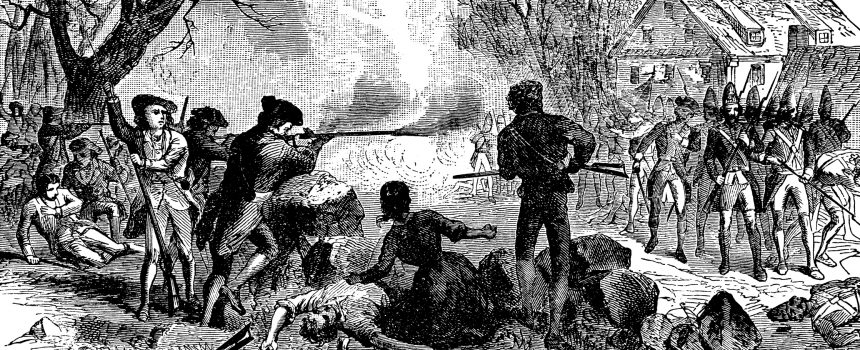Continuing our series on the comparison between the American War of Independence and today’s world of sales and commerce, let’s now take a look at a very unfortunate side of it all, using as an example the most famous traitor in American history.
For over 200 years in the US, the name Benedict Arnold has been synonymous with “traitor.” To call someone a “Benedict Arnold” means that someone has committed treason of the highest order.
Benedict Arnold
Who was he? During the American Revolution, Benedict Arnold was general who distinguished himself as a member of the Continental Army in several victories. He captured Fort Ticonderoga in 1775, engaged in delaying tactics at the Battle of Valcour Island (which made it possible for American forces to prepare for the defense of New York), successfully engaged in several other military efforts and was even wounded in battle.
Progressively embittered by several times being passed over for promotion and for other occurrences for which he felt insulted, it was Congress’s refusal of Britain’s 1778 proposal to grant full self-governance in the colonies that finally pushed Arnold over the edge to change sides and begin secret negotiations with the British. Having been awarded command of the West Point fort (later Military Academy), he engaged in a scheme to surrender the fort to British forces. The plan was thwarted when the Americans captured a British officer carrying papers which revealed the plot. Arnold fled, barely avoiding his own capture, and then openly joined the British. He remained with them through the war, and remained a British subject for the rest of his life.
Reflection on Leadership?
What does it say about George Washington that he had such a person as Benedict Arnold in his army? Washington was betrayed by one of his top generals, not simply a lieutenant or some other lower officer. Arnold betrayed Washington and the entire army.
The answer is, no, it doesn’t reflect on the quality of the leader. This is obvious, as Washington is still regarded as one of the greatest leaders of all time, and in the U.S. is considered “the father of our country.” In the same way, the discovery within a company of a traitor in their midst would not reflect on company leadership, either.
The reason for this can be found in the Austrian School of Economic Thought, which credits free-acting human beings as responsible for the direction of an economy. Humans have an infinite variety of motivations–and these motivations are not clear for anyone to see. You cannot look directly into the heart and mind of a person. Even a leader as great as George Washington, who worked with Benedict Arnold for five years, could not see through him. This doesn’t reflect on Washington at all–human beings do things for entirely their own reasons. Comparing this to sales, a buyer has his or her own reasons to buy that we know nothing of–and you might not easily see from your viewpoint as a seller why they did or didn’t buy.
It Can Happen Anywhere
What can we learn from this? Any company and any sales team can have traitors. And being a traitor doesn’t only mean that someone defects to an enemy camp–there are subtler things going on. The person isn’t working alongside you to achieve the same cause. In numerous ways, they’re betraying the company and betraying management. They might even be doing something like claiming to be out in the field selling while they’re instead off loafing at a Starbucks. So betrayal isn’t just the final step of running away to the other side; it starts well earlier.
When faced with any situation such as this, a leader and a company must ask themselves how they will overcome it. How did George Washington overcome this betrayal? Simple: by carrying on the fight. Washington could have thrown up his hands and said, “Oh, no! My general has fled! We are losing the war!” But no, he didn’t do that.
Some people think that they’ll never have traitors, but this, too, is an unrealistic view of human beings. There will always be traitors. They follow their own causes. Because they do, and because we can’t always see those causes, we don’t know what motivates them, or what kinds of assumptions and expectations they have.
The Good News, and Lesson Learned
If the bad news is that there will always be traitors around, the good news is this: they’re not very common. How many Benedict Arnolds were there in the American Revolution? One. Most people actually are good-hearted, want to do a good job, and in fact do. As we discussed in the previous article, management is a process of bringing the right people onto the bus, arranging them in the right seats, and putting the wrong ones off. Throughout this process you will occasionally encounter a traitor–there’s no avoiding it.
The big question is this: How do you survive it? How do you overcome it? There’s only one answer to that, as George Washington showed us: you overcoming it when you are determined not to give up. You’re determined to fight, and to win.
Sometimes a traitor will steal intellectual property–an idea or a process. Just remember–they might be able to copy things like that, but they can never copy you.
You cannot be replaced by anyone or anything. And the only way you can really lose is to give up.
Pipeliner CRM keeps your team dedicated and focused on the right priorities. Get your free trial of Pipeliner CRM now.























































Comments (1)
The very best recreation information app out there!!